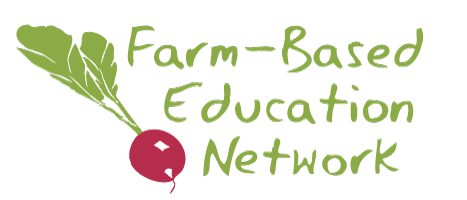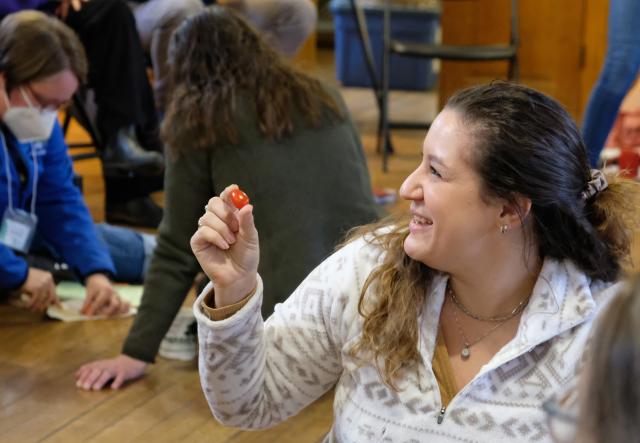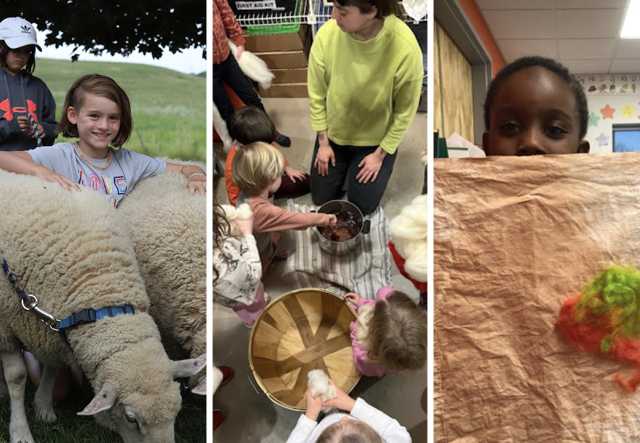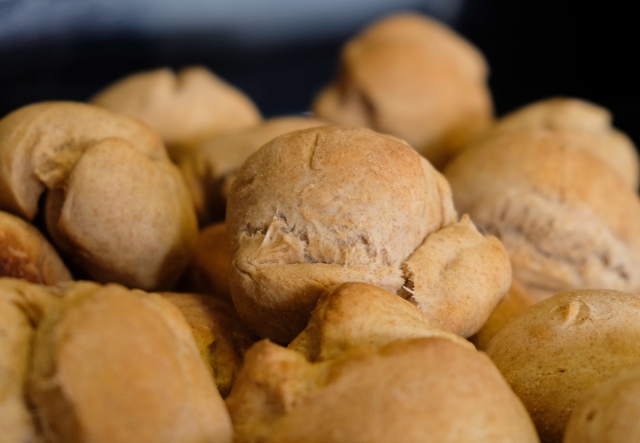Connecting to Farms, and a Fun Plant Poetry Activity
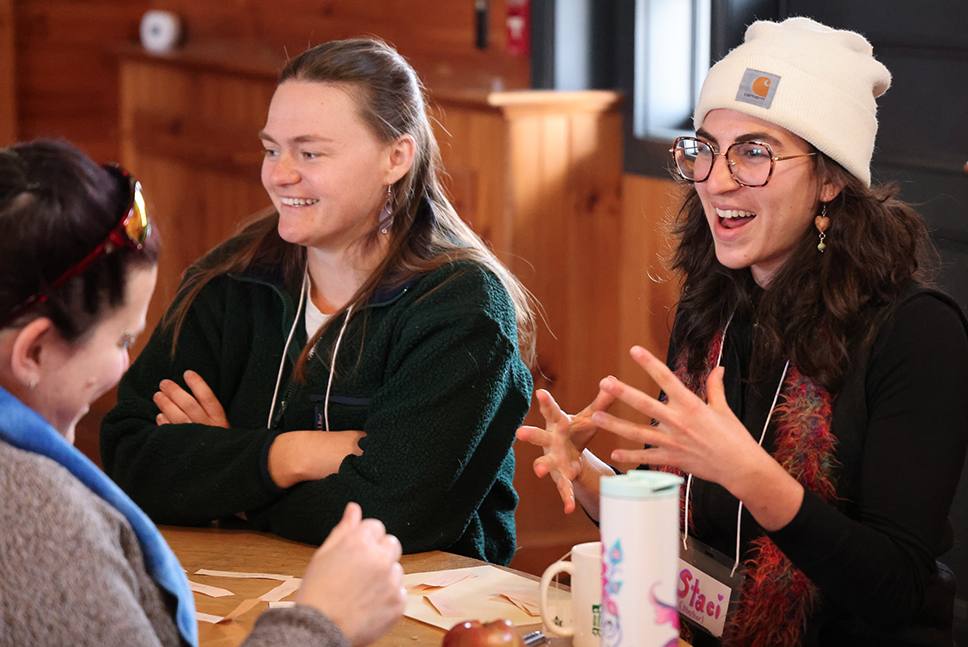
What do a carton of eggs, a wool blanket, and a bag of Cheez-Its all have in common?
None of them would be possible without farms!
A discussion tracing these everyday items back to the source kicked off the recent ABCs of Farm-Based Education workshop at Shelburne Farms. Nineteen educators came from farms and gardens across the country to learn, connect, and share inspiration. The program has been offered for 22 years at Shelburne Farms and at other Farm-Based Education Network sites around the country.
“All of you know how important farms are. As educators, our challenge is, how do we get other people to understand the importance of farms?” said Shelburne Farms educator and ABCs co-facilitator Susie Gilmore. “How do we engage people in our farms and in our food systems?” This opening activity was the first of many to show how dialogue can be sparked about where foods and fibers come from and the impact of our choices.
Below, we’re sharing an activity from the ABCs program to hopefully help you connect with food and farms. Anyone — classrooms or families — can enjoy this activity any time of year.
Activity: Plant Part Poetry
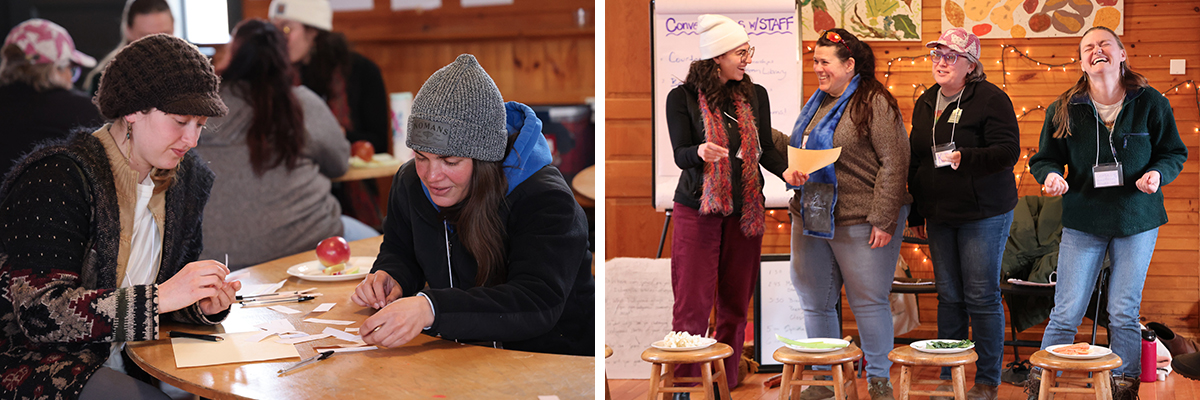
Sharpen your descriptive and identification skills with a fun taste-testing activity. First, sample various fruits and vegetables; then, use words and phrases inspired by your tasting tour to create poems. “What I love about this activity is that you don’t even have to know the plant to come up with a description of what it tastes like,” shares Susie.
This activity is written for a classroom-sized group of learners (15 or more students) grades two and up, but could easily be modified for a smaller group.
For this activity at ABCs, we used five different fruits and vegetables, each representing a different plant part: apple slices (fruit); cauliflower florets (flower); celery (stem and stalk); spinach (leaf); and carrots (root). Use whatever fruits and vegetables you have on hand, or, pick your own seasonal assortment that represents a variety of plant parts. You’ll want enough so that each person in your group can sample each plant.
Another way to play: let your next farm-fresh dinner inspire you and your family! Together, write a poem describing what’s on your plates.
Materials
- An assortment of fruits and vegetables, cut into bite-sized pieces (see note above on selection)
- Small paper lunch bags or reusable containers
- Slips of paper and pencils or pens
Directions
- Arrange each fruit or vegetable on plates and put them around your space. Place a paper lunch bag next to each plate along with slips of paper and pencils.
- Invite the group to visit each station; taste the fruit or vegetable; and record their first impressions. Each person should write a single word or short phrase on a slip of paper and place it into the adjacent bag. Record whatever stands out about that item—perhaps something it reminds them of, or its color, shape, taste, texture, or smell. Rotate to each station. Make sure everyone has had a chance to taste every plant.
- Next, use the words and phrases inside each bag to create a poem. For large groups, divide into small teams, and have each team work together to create a poem. If you’re doing this activity with just a few people, individuals or pairs might write each poem. There are many additional rules you can add here: you might require that each team use all the words or phrases in their bag as part of their poem. You can also decide if you’d like to allow people to add words or phrases to their poem, or only use the words in their bag.
- Finally, it’s time to perform your poems. Place all the plates of fruits or vegetables in a central location, and invite each person or group to stand and read their poem aloud. For an added challenge, keep it a secret which plant part has been assigned to each group, and see if the audience can guess which plant inspired each poem, and what part of the plant it represents! End the activity by saying a hearty thank you to the farms and farmers that got these plant parts to your table.
This activity is based on “Posey Poetry” from our publication Project Seasons. Download a PDF of the original activity.
ABCs is co-presented with the Farm-Based Education Network, a project of Shelburne Farms. More farm-based education resources and activities.

